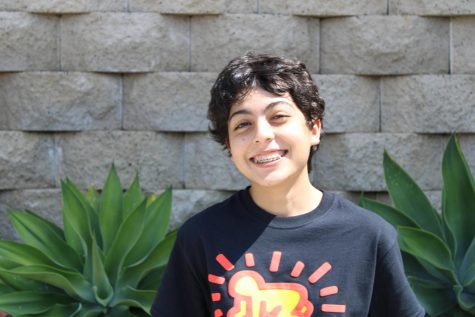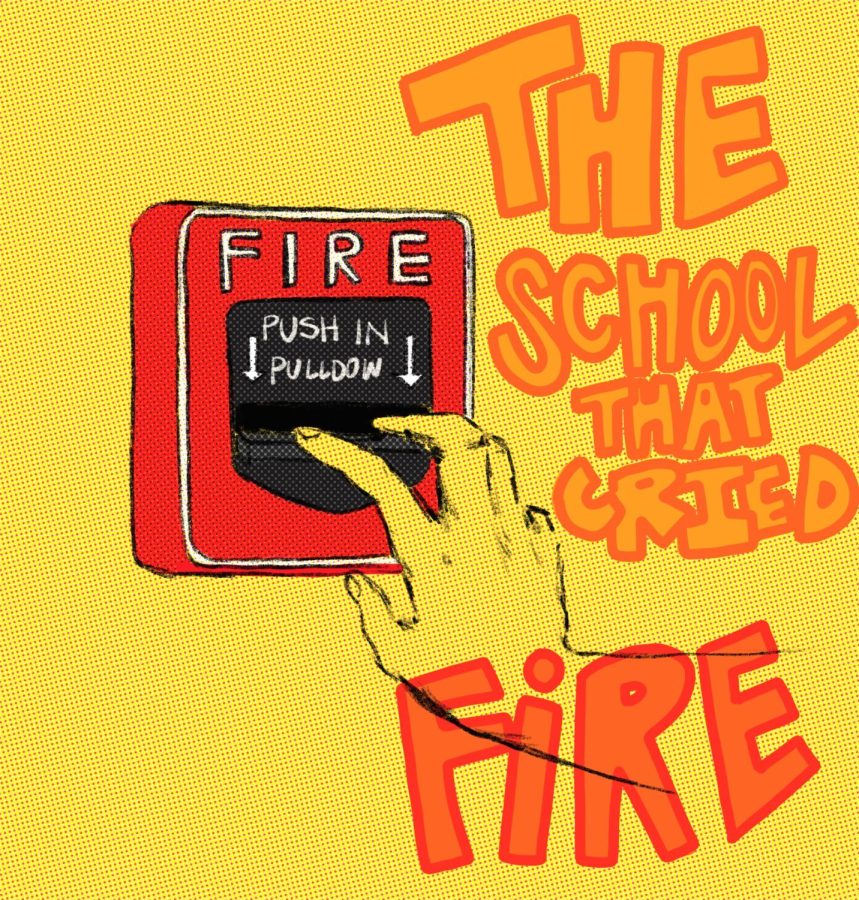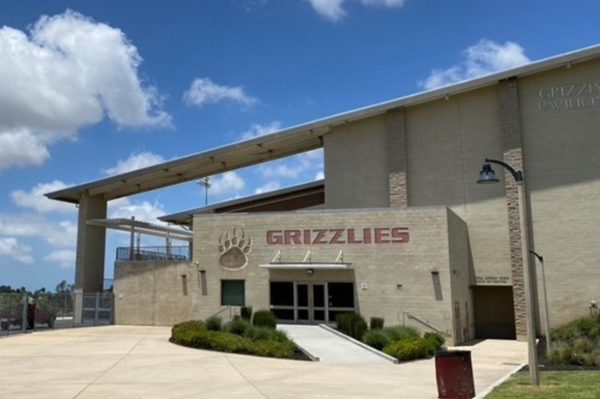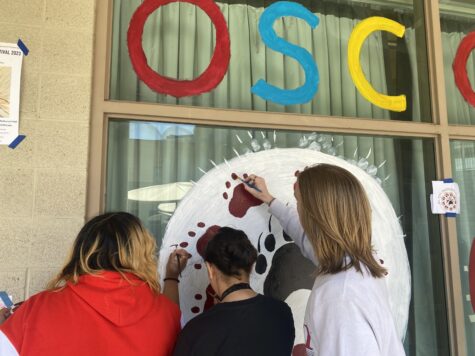The school that cried fire alarm
With the constant sound of the fire alarms, students and staff alike start to question the validity of the “warnings.”
Photo by Sophia Novelo
The frequent false alarms raise safety concerns for staff and students on campus.
Since coming back to school in person it’s common for the fire alarm to go off at the end of class and sometimes multiple times throughout the day. Although this might seem like a harmless prank or a small mishap, the implications of these incidents are more dangerous than it seems.
“Thanks to the frequency of false alarms, it feels like if a fire were to occur the present danger would be even worse because no one would take it seriously. Not only that, but the fire alarms distract from valuable class time and disrupt the learning environment over and over again, ” said senior Malena Colwell.
In every instance in which the fire alarm has sounded this year, there has been no danger behind it. There is no distinction between a false alarm and one that is alerting students and staff of fire. In the event that there is an actual fire on campus, students have been conditioned to believe that the pulled alarm is nothing to be worried about.
“When the fire alarm used to get pulled, I used to take it seriously and think that there’s an actual fire somewhere or an unexpected drill. Now that the alarm has gone off so many pointless times it’s just annoying and almost definitely just a joke or some prank,” said freshman Alyssa Guzman.
Not only does it pose a large threat when there is an actual fire on campus but pulling the fire alarm has also been used by school shooters as a strategy to get masses of people outside all at once. Although we saw a decrease in the number of shootings nationwide in the last couple of years, now that students are back on campus that number has gone up dramatically. It’s because of past events that this indiscretion is a crime; the punishment is a five-day suspension and the perpetrator is arrested by the sheriffs.
The effect of the fire alarm on the students diminishes with every sound of the alarm. Even the teachers are starting to doubt the seriousness of the issue and let students out of their classrooms before it is announced that there is no present danger.
“Teachers should not be releasing students; in fact, you often hear that PA saying, ‘Please hold in place until further notice.’ That’s a safety element. When we evacuate, your teachers will take you to a spot, and then they take attendance because we have to find out if we’re missing anybody. If you’re missing, we have to go back looking for you. I can’t do that with 3,000 students,” said MHHS Principal Cliff Mitchell.
This year’s freshmen have only had one fire drill throughout their high school career, which occurred today. As for the sophomores, their experience with fire drills is extremely limited. Upperclassmen haven’t had a fire drill since before distance learning was put in place and the drill today was a jarring reminder of the procedure.
“By [Education] Code, there are certain amounts of drills that we have to do. COVID has thrown a wrench in that, but typically we have one drill per semester. I anticipate we will be having drills this spring, if not more in the future. These are also classroom disruptions,” said Mitchell.
Another serious concern is how the sounding of the fire alarm might affect the special education students on campus. The constant sounding of the fire alarm can cause distress, and confusion, which can cause them to think that school is no longer a safe environment.
To compare, the Rock Band performance this week had students eating their lunch in the front office, away from the harsh noise and shouting. The sound of the alarm is louder and more consistent throughout the school, and one can only imagine the effects when it is unplanned.
In the event of a fire alarm, Principal Mitchell gave the student body some advice on how to proceed safely.
“I would look to your teachers. Watch your friends, and if you see one of them about to do something, help them make a good choice. It’s always that ‘see something, say something,’” said Mitchell.
The past experiences of others and common sense should be enough to deter students from pulling a false fire alarm, but as it is not, we need to be more vigilant about our surroundings. As a school, we must band together to prevent these events from happening, for the safety and well-being of everyone on campus.

(She/Her) Sophia Novelo is a senior and this is her second year in journalism. As an Editor-in-Chief, Sophia fosters an environment in which students'...











